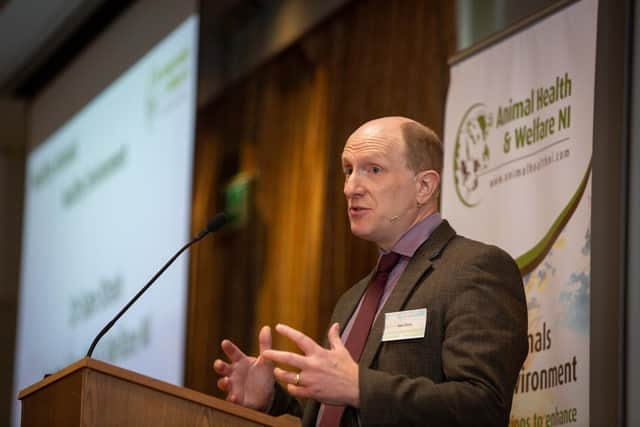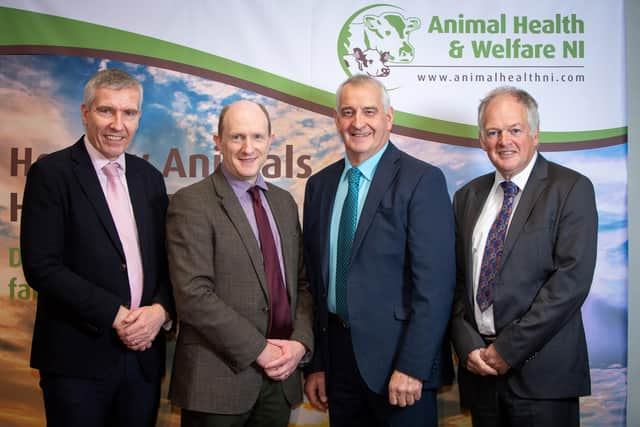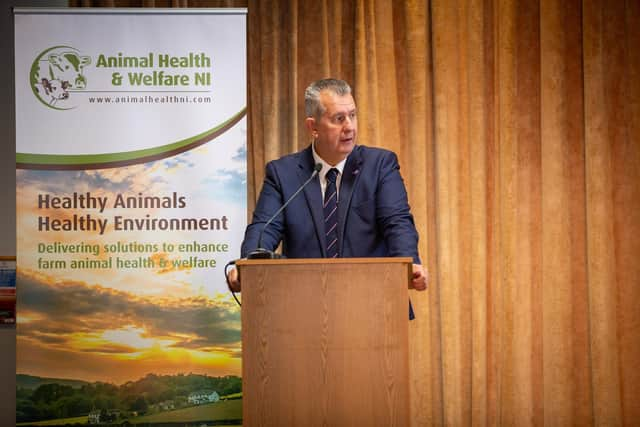Eradicating BVD remains a top priority
and live on Freeview channel 276
His comments were made against the backdrop of confirmed disease case numbers rising significantly, despite the continuing roll-out of an eradication campaign.
According to Strain, the Department of Agriculture, Environment and Rural Affairs (DAERA) must now step in and introduce full movement restrictions on herds containing Persistently Infected (PI) animals. He is also calling for farmers to be informed about the confirmed presence of BVD in their areas.
Advertisement
Advertisement
Strain made these comments as delegates gathered for a major conference, hosted by AHWNI. The event was themed: 'Healthy Animals – Healthy Environment'. It explored the means by which how tackling endemic disease can go hand in hand with the fight against climate change, and the need to reduce greenhouse gas emissions from farms. But the fight against BVD is an absolute priority for the AHWNI chief executive. He confirmed that the Republic of Ireland is about to be declared ‘officially free’ of this notifiable disease.


“This development will place an immediate restriction on all cattle movements between Northern Ireland and the rest of the island. The only way around this problem is for Northern Ireland to push on and eradicate BVD on its own terms.”
Strain also highlighted the fact that BVD is a ‘gateway disease’ to other health-related problems including pneumonia and a myriad of other conditions that will act to significantly reduce animal performance.
The conference attracted delegates from across Europe. Proceedings focussed on the link between good animal health and lower greenhouse gas emissions.
Advertisement
Advertisement
Sam Strain commented: "The need to reduce greenhouse gas emissions and overall carbon footprint on-farm is something the industry is taking very seriously, and through our conference we explored how this aim can be achieved through tackling endemic disease.”


Turn to page 11.
“As recent studies have shown, poor animal health is a major constraint on efficient livestock production, and therefore a significant root cause of excess emissions.”
He added: "Tackling endemic disease has a clear impact on farm efficiency by increasing growth rate, reducing days to slaughter, and increasing reproductive performance. This in turn will reduce methane emissions, potentially by as much as 10%.”
Northern Ireland’s farm minister Edwin Poots MLA also addressed the event.


Advertisement
Advertisement
He said: “AHWNI has made a significant impact since its formation in 2012 becoming the principal organisation within Northern Ireland with responsibilities for developing programmes to assist farmers in tackling some of the most important endemic diseases of cattle, including BVD and Johne's Disease.
“In addition, AHWNI has become a provider of farmer training and an important research partner in animal health."
The minister continued: "Endemic disease on farms has a direct impact on greenhouse gas emissions as livestock productivity will drop through reduced yields, fertility issues or early mortality or culling.
“This in turn increases the amount of emissions per unit of animal product. AHWNI is a valued partner for my Department and I look forward to all that will be achieved in the next 10 years too with the dual aims of improving animal health and reducing greenhouse gas emissions.”